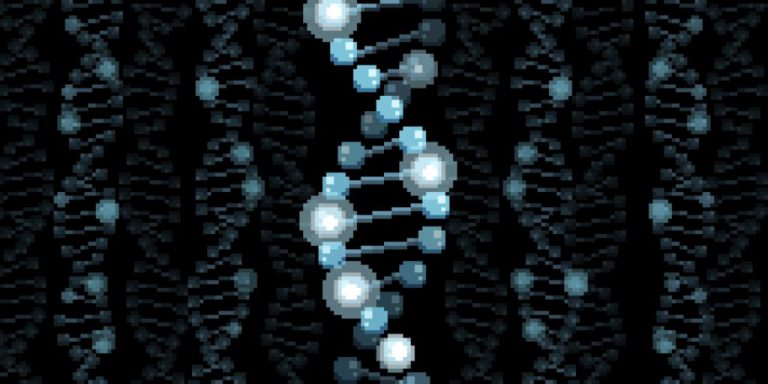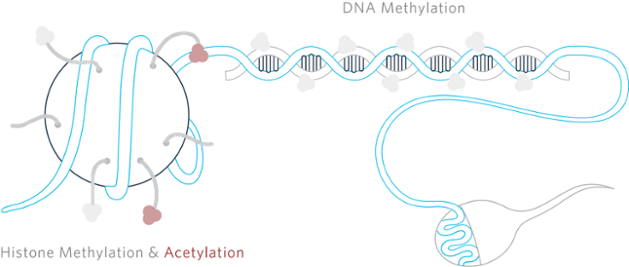Sperm Changes With Age
For years it has been assumed that sperm cells are only responsible for providing the father’s DNA; the rest of the baby’s early development is the responsibility of the mother. However, several studies have shown changes in sperm epigenetics (particularly, DNA methylation) correlate to both fertilization potential as well as early development (i.e., embryogenesis). If DNA methylation plays an important role in early development, is it possible that sperm epigenetics contribute to other, later stages of development, such as brain development?
Many studies have shown that children of older fathers are statistically more likely to have a neurodevelopmental disorder. This paternal age effect is particularly associated with an increased risk of brain disorders such as schizophrenia, bipolar disorder, and autism. Although there appears to be a clear association between neurodevelopmental disorders in the offspring and paternal age, we still have very little understanding of the etiology. A study published in PLoS Genetics by Douglas Carrell starts to address this by asking the questions:
- Do DNA methylation changes in sperm occur as a function of age and
- Do these changes suggest a biological marker for the increased risk of brain diseases in offspring?
The short answer to these questions is yes and possibly.
Sperm DNA Methylation and Aging
DNA methylation is just as it sounds – the binding of methyl groups to DNA, specifically cytosine bases. The DNA methylation pattern across the genome is both stable and dynamic, meaning it is at once heritable (both mitotically and meiotically, although transgenerational epigenetic inheritance is, at least, controversial) and can change as a function of exposures. The methylation pattern across the genome functions to regulate protein expression. Another way to think about it is every cell in your body has the same DNA; what makes each cell type unique is, in part, a different DNA methylation pattern. People have often referred to DNA methylation as the 5th base in addition to adenine, cytosine, guanine, and thymine.
There have been several studies (here, here, and here) that have shown aging correlates to changes in the level of DNA methylation in various tissues in the body. Additionally, there was an excellent study (see figure below, on the left) that found an increase in de novo mutations in the blood as a function of age. Consistent with this, Doug Carrell’s group found significant global DNA methylation changes in sperm as a function of increasing age (figure below, right).
So, this is intriguing. There are clear de novo changes (both mutations and DNA methylation) as a function of paternal age in tissues throughout the body. Additionally, we know that DNA methylation in sperm changes with age. However, what we really want to know is can we use this information to predict disease risk in the individual and/or the offspring? I think that remains to be seen. But this data certainly points in a very interesting direction. When Jenkins et al. did a deeper analysis, there were several gene families that showed age-related changes in sperm DNA methylation that are thought to be associated with schizophrenia and bipolar disorder. Does this mean that there are predictable changes in sperm DNA methylation that will lead to brain disorders in the offspring? As with many things, we’ll need much more research to know.
As the authors point out, we need to think about two important questions regarding the biological significance of this data: 1) do these changes in DNA methylation cause changes in transcription, thus, phenotype, and 2) are these epigenetic changes capable of avoiding epigenetic reprogramming during fertilization? This second question is considerably important when we think about trangenerational inheritance. Nevertheless, these data point to a very intriguing possibility of using changes in sperm DNA methylation to predict disease risk; certainly a direction worth pursuing.








